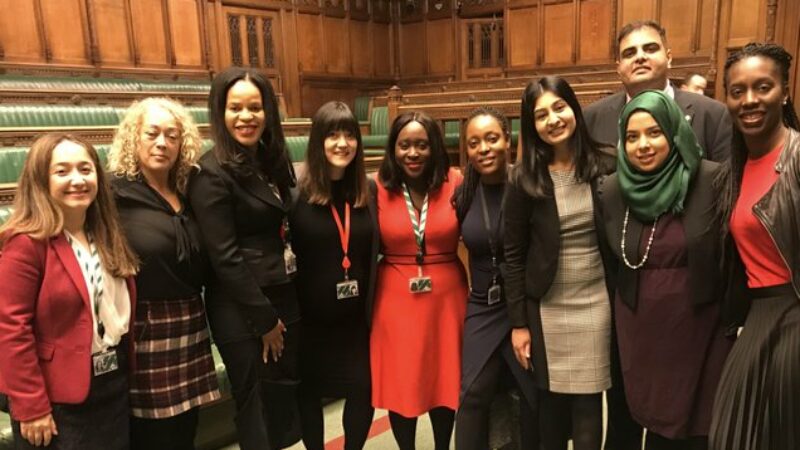
During a bitter discussion about the general election on the first post-election Parliamentary Labour Party meeting, the newly-elected Leicester East MP Claudia Webbe said that there was “cause to celebrate”. Her comments were reportedly met with amusement and disdain. You can see why: how could there be – when we’ve just had our worse election performance since 1935 – cause to celebrate?
But scratch underneath the comment that led to a lot of sneering and sniggering and you get to the point that Webbe was trying to make. She was trying to call attention to the fact that we did see a good night for BAME Labour members. While it was a hugely disappointing result overall, it was very encouraging to see mostly young BAME candidates winning their elections and then taking their seats in parliament.
From Nadia Whittome becoming the baby of the House at just 23 for Nottingham East to Feryal Clark becoming the first Kurdish women MP in Enfield North, Abena Oppong-Asare in Erith and Thamesmead, Bell Ribeiro-Addy in Streatham, Florence Eshalomi in Vauxhall, and so on. Many of these candidates and their campaigns were inspiring in unique ways.
Overall, 41 Labour candidates from BAME backgrounds were successfully elected to the House of Commons, an increase from 32 in 2017. That kind of change should always be seen as a positive – a more diverse PLP is always better to represent a more diverse Labour movement. And I look forward to seeing them represent their communities in the face of a right-wing Tory government led by Boris Johnson.
But the last thing we should do now is be complacent. There is still a lot more work to be done to make our parliament and our politics more diverse and representative. Overall BAME parliamentary representation is 10%, which still doesn’t mirror the 13% of the country who are part of a minority ethnic group. Even then, the numbers do not tell the whole story.
While on paper we are seeing significant progress, in reality there are still glaring problems when it comes to representation. One example is the fact that representation among Afro-Caribbean men is still woefully low with only three MPs – Mark Hendrick, David Lammy and Clive Lewis – representing 1.49% of the entire PLP. No new black male MPs have been elected since 2015.
We have also got to look at the staff behind MPs, who are often seen as too white and too male. For many ethnic minorities, they feel terribly underprepared and not ready to apply to work in Westminster. Without their opinions and voices in the corridors of power, we would never get to hear the BAME perspectives on many important policy areas such as education, the environment, housing and justice.
For many ethnic minorities, the Labour Party is their political party: 61 of the 63 most diverse seats in parliament returned Labour MPs. If we are committed to tackling inequality in this country, we have to do better to make sure that our voices are heard and acknowledged. As a party that prides itself on diversity and equality, Labour can do more to address this imbalance.
We should continue and expand the brilliant Bernie Grant Programme – spearheaded by Dawn Butler – to teach and champion BAME members within the party. BAME members, especially young members, should be encouraged to take up positions and be more active within Labour and our affiliates. We should complete the restructuring of BAME Labour soon to give BAME members a proper voice. And as we enter another leadership election, I will be very interested to see what the individual candidates will commit to in order to change minority representations for the better. The general election was a great starting point, but there is still a lot more to be done.




More from LabourList
SPONSORED: ‘Industrial hemp and the challenge of turning Labour’s priorities into practice’
‘A day is a long time in politics, so we need ‘action this day’’
Strong support for child social media ban among Labour members, poll reveals